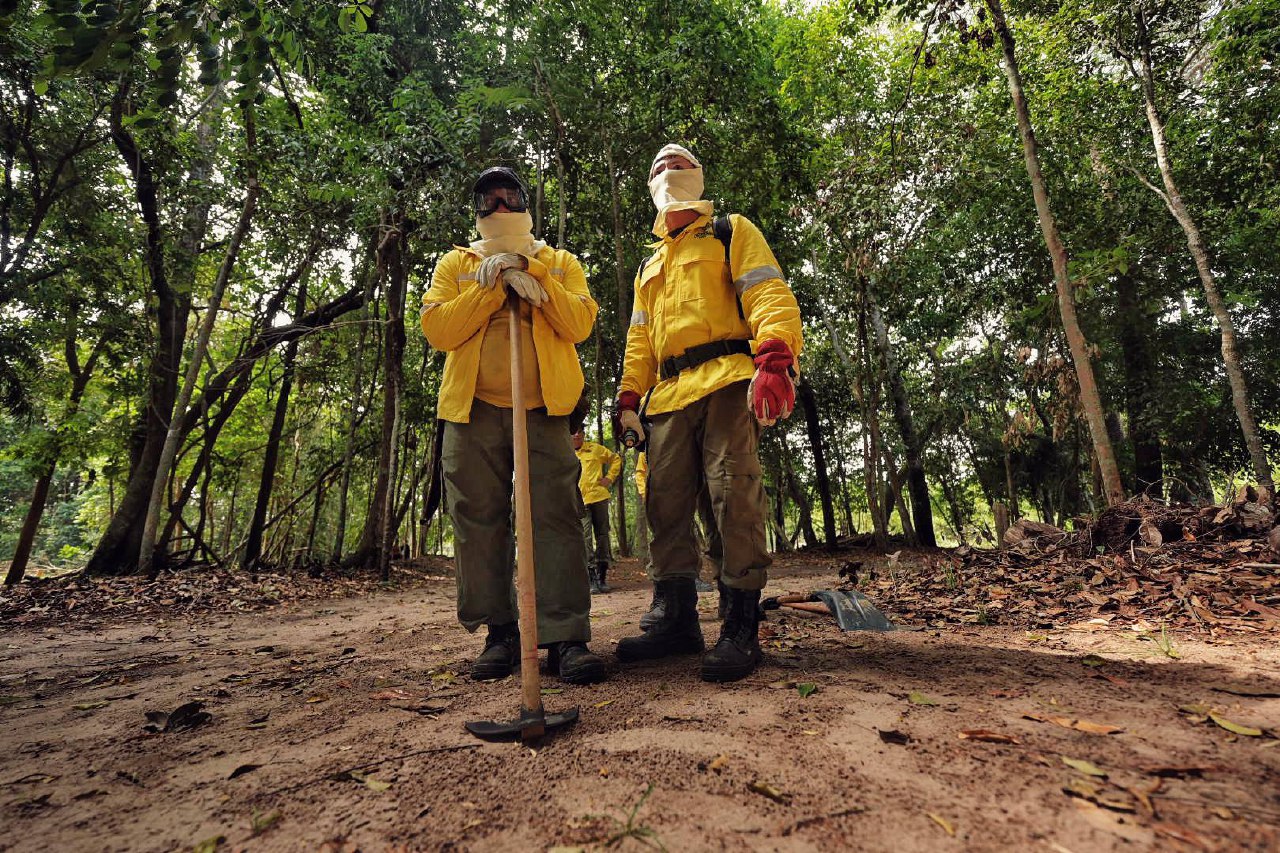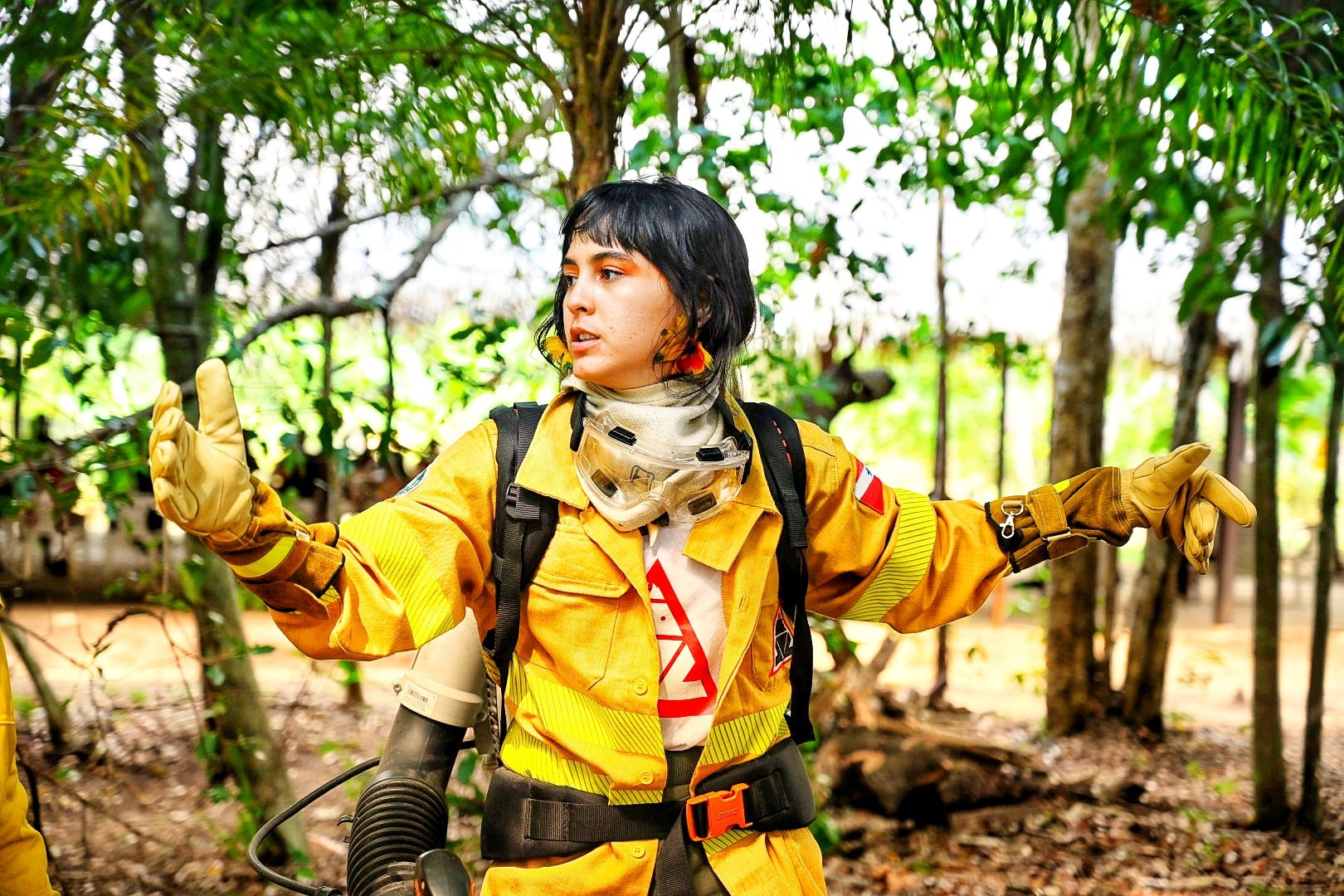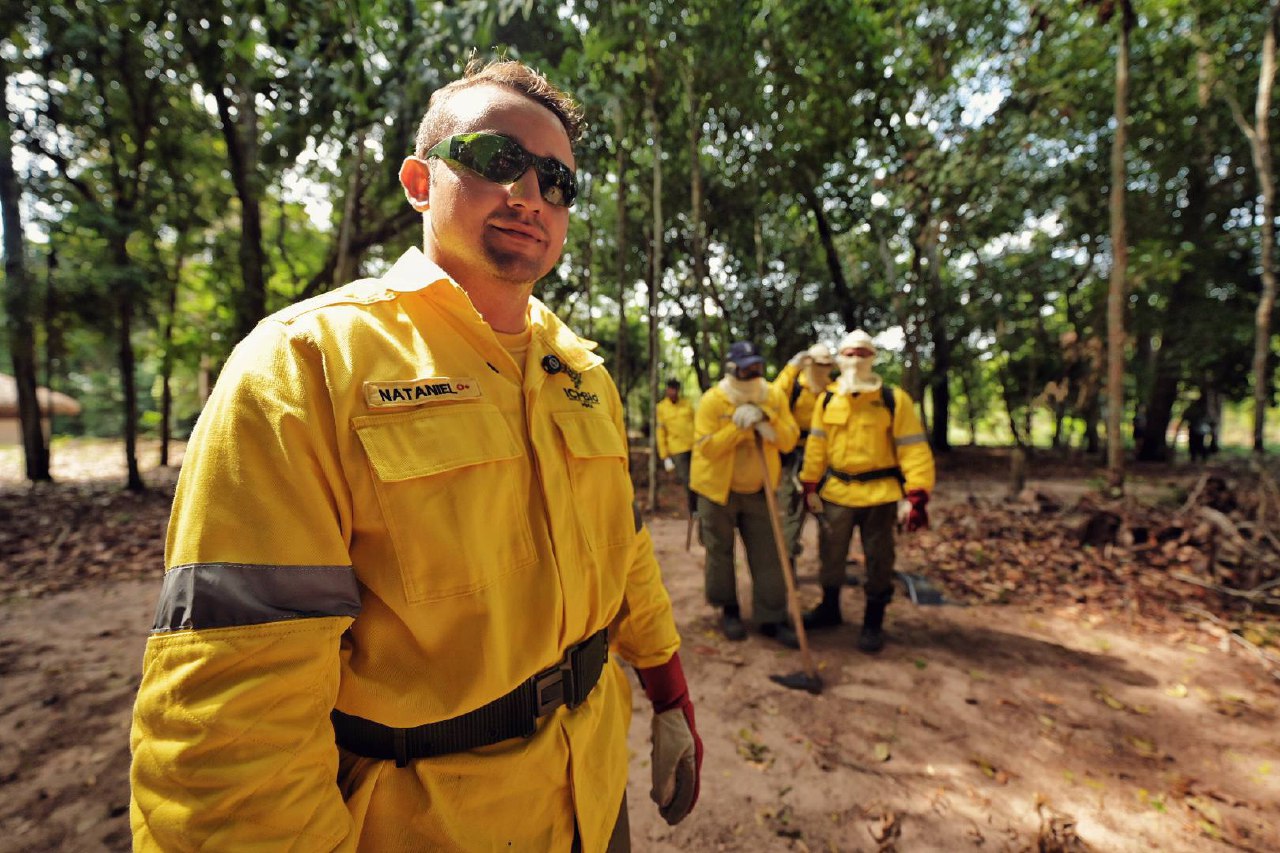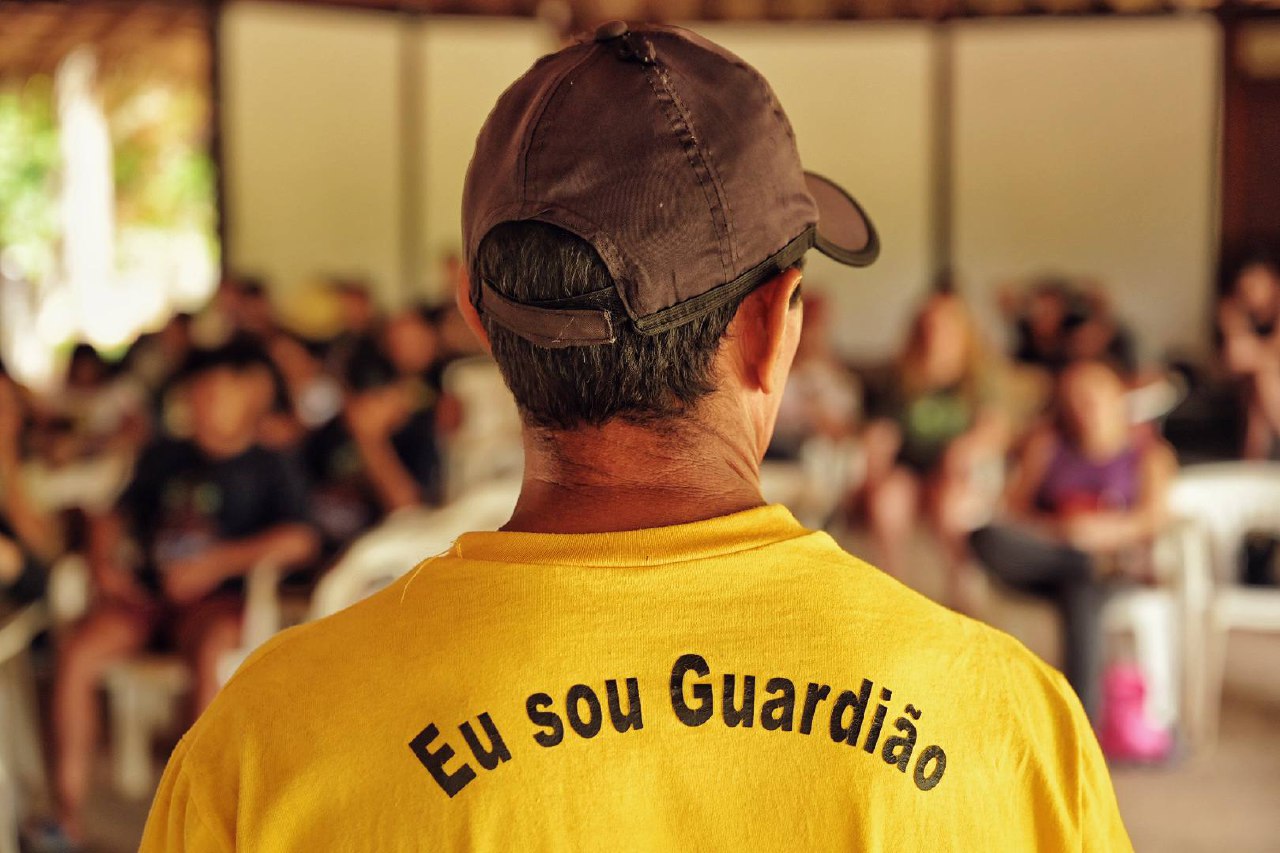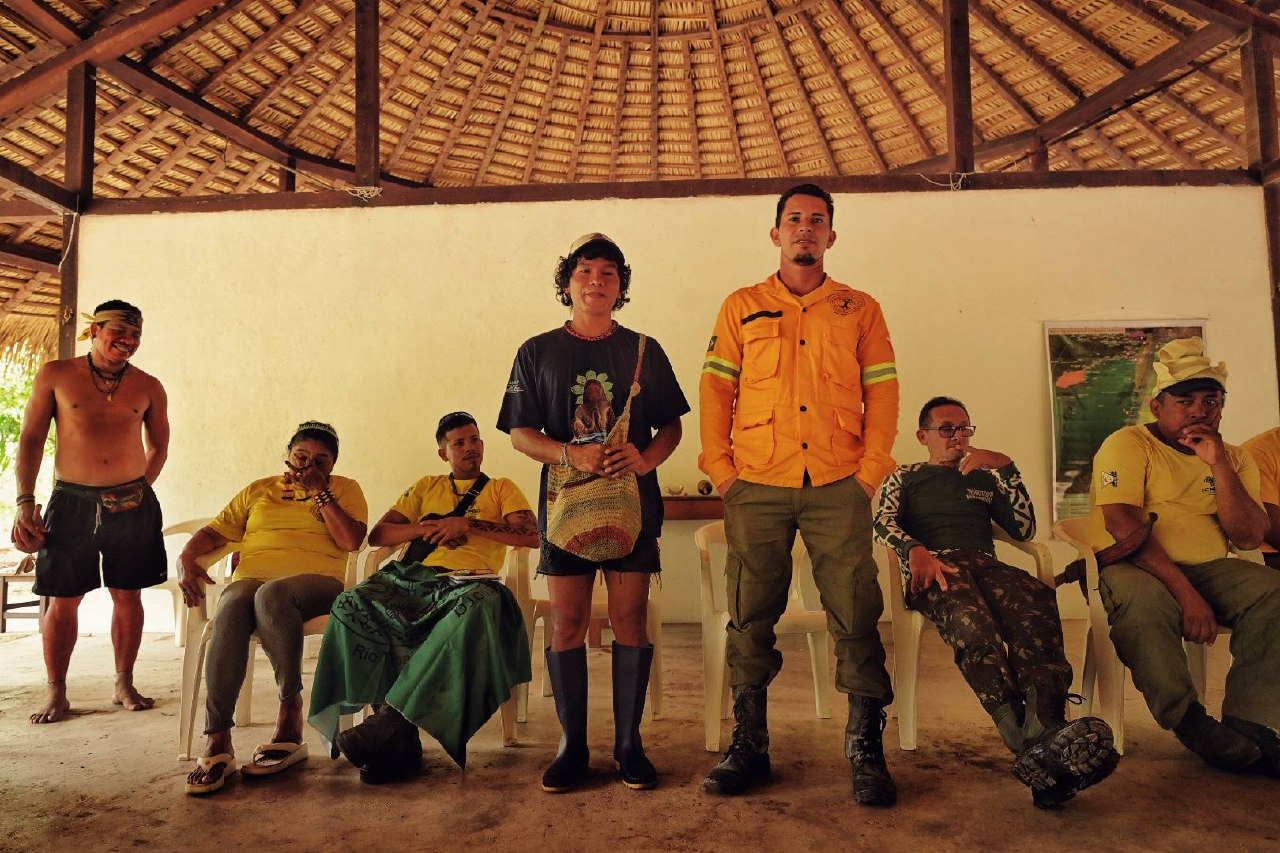November 04, 2025
By Alejandra Salgado, Learning and Collaboration Programme Officer
“We are the mountain, the rivers, the living forest. We are the seeds, the trees, the refuge. We are the territory of all life. We are the Amazon, we are resistance.” – Youth of the Yaku Mama Floating Climate Action Caravan.
For almost a month of navigation, the Yaku Mama Floating Climate Action Caravan – which in Kichwa means “Mother Water” – sailed along the Tapajós and Amazon rivers towards Belém do Pará, carrying an urgent message from the heart of the forest: the defence of life and territories must be at the centre of the global climate agenda.
More than 60 activists from Indigenous Peoples from Ecuador, Colombia, Peru, Brazil, Guatemala, Costa Rica, Panama, Mexico and Indonesia took part in this journey, which covered over 3,000 kilometres, uniting voices and territories on the road to COP30.
The initiative aimed not only to make visible the perspectives and solutions arising from the direct experience of those who protect ecosystems, but also to foster dialogue among Indigenous and youth activists from around the world.
TINTA joined the Caravan to support exchange and collaboration, working to highlight youth-led solutions and strengthen their political positioning in preparatory and advocacy spaces towards COP30.
“It is time to show the world that our wisdom can make a difference in the decisions that shape our collective future. It is a great responsibility to be here, but also a unique opportunity to build alliances and inspire other struggles,” said Livia Canela, Indigenous communicator from the Canela Mora people and member of COIAB.
Each stop was an opportunity to meet, exchange knowledge, and strengthen alliances.
In its final stretch, the Caravan travelled through the Tapajós River region, where Indigenous Peoples face threats such as deforestation, legal and illegal mining, agrochemical use, forest fires, and the expansion of state and private extractive projects.
In the face of this constant pressure, communities respond with innovation, organisation, and collective strength.
Among their strategies stands out the integrated fire management used for agriculture and land clearing — an ancestral practice shared by Amazonian, Mesoamerican, and Indonesian peoples present in the Caravan. This approach, rooted in traditional knowledge, is now recognised as an effective climate solution, capable of preventing fires, regenerating ecosystems, and strengthening territorial resilience in the face of climate change.
In the Tapajós Reserve, for instance, a unique model of shared management has been developed between the Brazilian State, through the Chico Mendes Institute for Biodiversity Conservation (ICMBio), and local communities. For the first time, Indigenous and community brigades are working alongside institutional brigades in fire prevention and combat. Eight new brigades were created this year, with 85% of their members from the communities themselves.
This model represents a political and cultural alliance that recognises the central role of communities in protecting the Amazon forest. It also strengthens environmental education and local leadership, involving young people, women, and elders in territorial defence.
On 9 November, the Yaku Mama Caravan arrived in Belém do Pará to demand that climate policies be built from the territories, ensuring justice for those who protect life.
Among the key demands presented in their recent document are the urgency of an Amazon free from oil and mining, the recognition of territories as living beings with rights, and Indigenous territorial sovereignty over extractive laws.
This journey is further proof that viable and replicable solutions already exist: they are found in the monitoring methods, defence strategies, governance systems, and spirituality that keep the forest standing, the water clean, and biodiversity alive.
The arrival of the Yaku Mama Floating Climate Action Caravan at COP30 in Belém does not mark an end, but rather the beginning of sustained collective action, where Indigenous youth will continue to remind the world of an essential truth: “We are the hope, we are the answer.”
